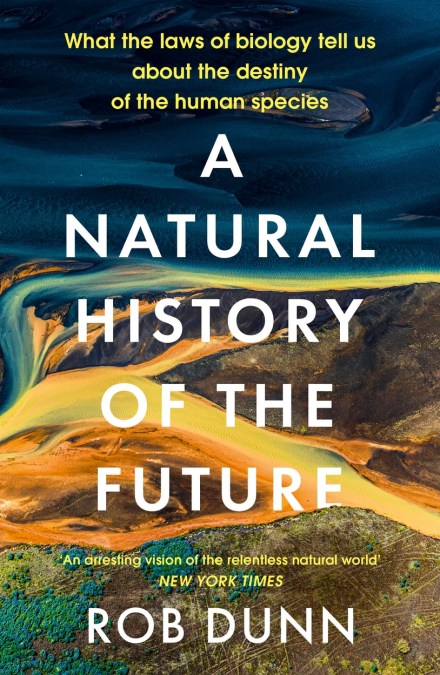Over the past century, our species has made unprecedented technological innovations with which we have sought to control nature. In A Natural History of the Future, biologist Rob Dunn argues that such efforts are futile. We may see ourselves as life’s overlords, but we are instead at its mercy. In the evolution of antibiotic resistance, the power of natural selection to create biodiversity, and even the surprising life of the London Underground, Dunn finds laws of life that no human activity can annul. When we create artificial islands of crops, dump toxic waste, or build communities, we provide new materials for old laws to shape. Life’s future flourishing is not in question. Ours is.
A Natural History of the Future sets a new standard for understanding the diversity and destiny of life itself.
A Natural History of the Future sets a new standard for understanding the diversity and destiny of life itself.
Reviews
[A] lucid discussion . . . Dunn's absorbing analysis advocates making the most of the few certainties we have
[Dunn argues] people can help mitigate the effects of climate change by valuing "the rest of life" outside humanity, as well as heeding the lessons that other life has to teach. Thoughtful and accessible, this deserves a wide readership
Five stars . . . it makes the reader think, and there are some truly fascinating ideas about the way species interact with their environment . . . A useful and timely book
Rob Dunn sketches an arresting vision of this relentless natural world . . . If we want to know what's coming, then, we would be well advised to familiarize ourselves with them, Dunn argues. To that end, his book functions as a helpful crash course in ecology and, as the title implies, an augur of sorts
A fascinating, shocking, and inspiring guide to the future by one of the most creative and eloquent biologists of our time. Dunn's book is packed full of insight from the latest scientific discoveries about the wonders and troubles of the living Earth
A stimulating exploration . . . The author avoids the usual implausible how-to-fix-it conclusion . . . Instead, he offers a book that is less doomsday prophecy and more excellent primer on ecology and evolution. An imaginative, sensible education for those concerned with the fate of the Earth
A timely, thought-provoking analysis, delivered in the affable prose that has become Dunn's hallmark
Even if we could halt fossil fuel emissions tomorrow, we would still need to make some big changes. Evolutionary biologist Rob Dunn's timely new book . . . is a guide to this complex problem and offers palatable solutions . . . a clear and important read
In forecasting future ecology, Dunn enlists biological laws to predict what likely lies ahead for life on our planet, including us . . . Dunn engagingly explains biogeography, inventive intelligence, and speedy evolutionary reaction to changing conditions
Rob Dunn steers our attention toward the biota under our noses as part of a broader project to explicate the circumstances that prompt new life forms, and adaptive behaviors, to appear . . . The biodiversity and versatility on display in the animal kingdom of which we are part have lots to teach us. To remain at home in the world, we too will need to change
Speciations in weird urban habitats, viruses chasing hosts around the globe, and the greatest challenge life on Earth has faced for two million years: this is the fascinating and sobering ecology of the Anthropocene

